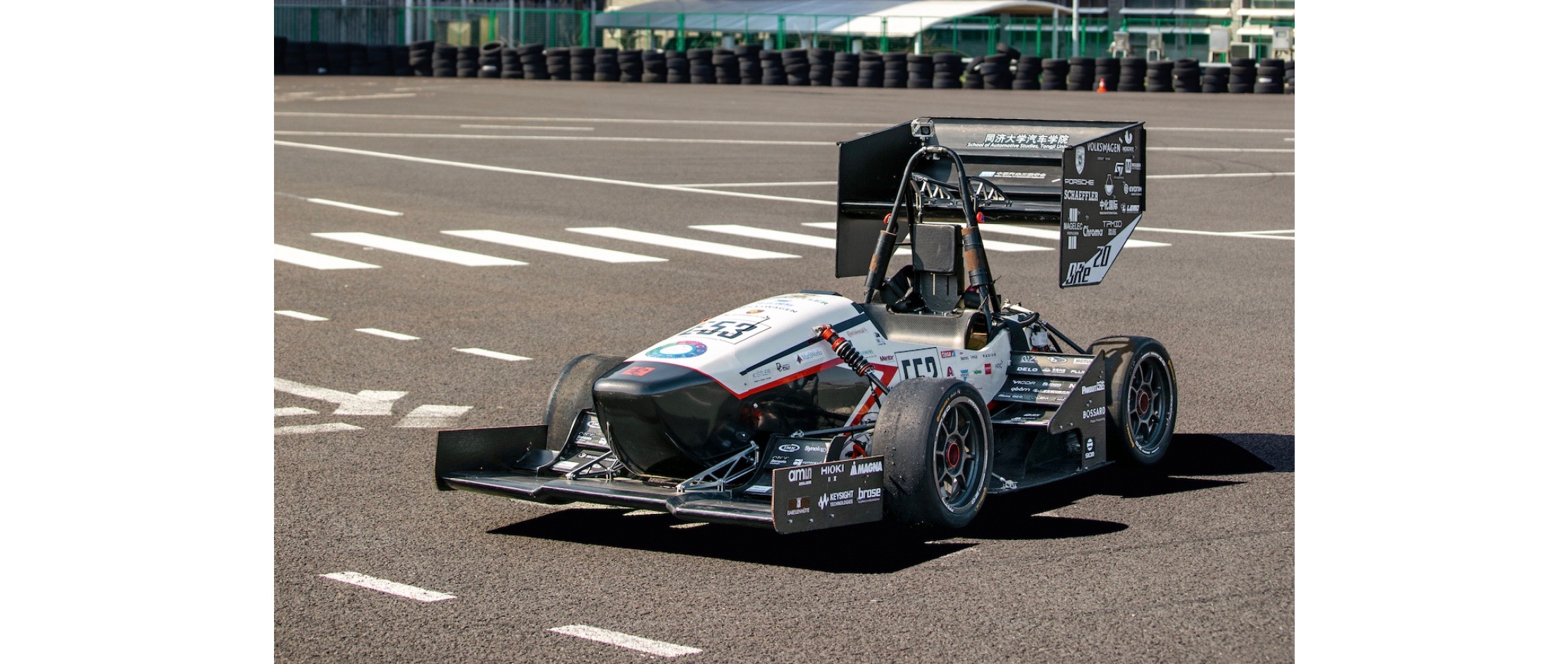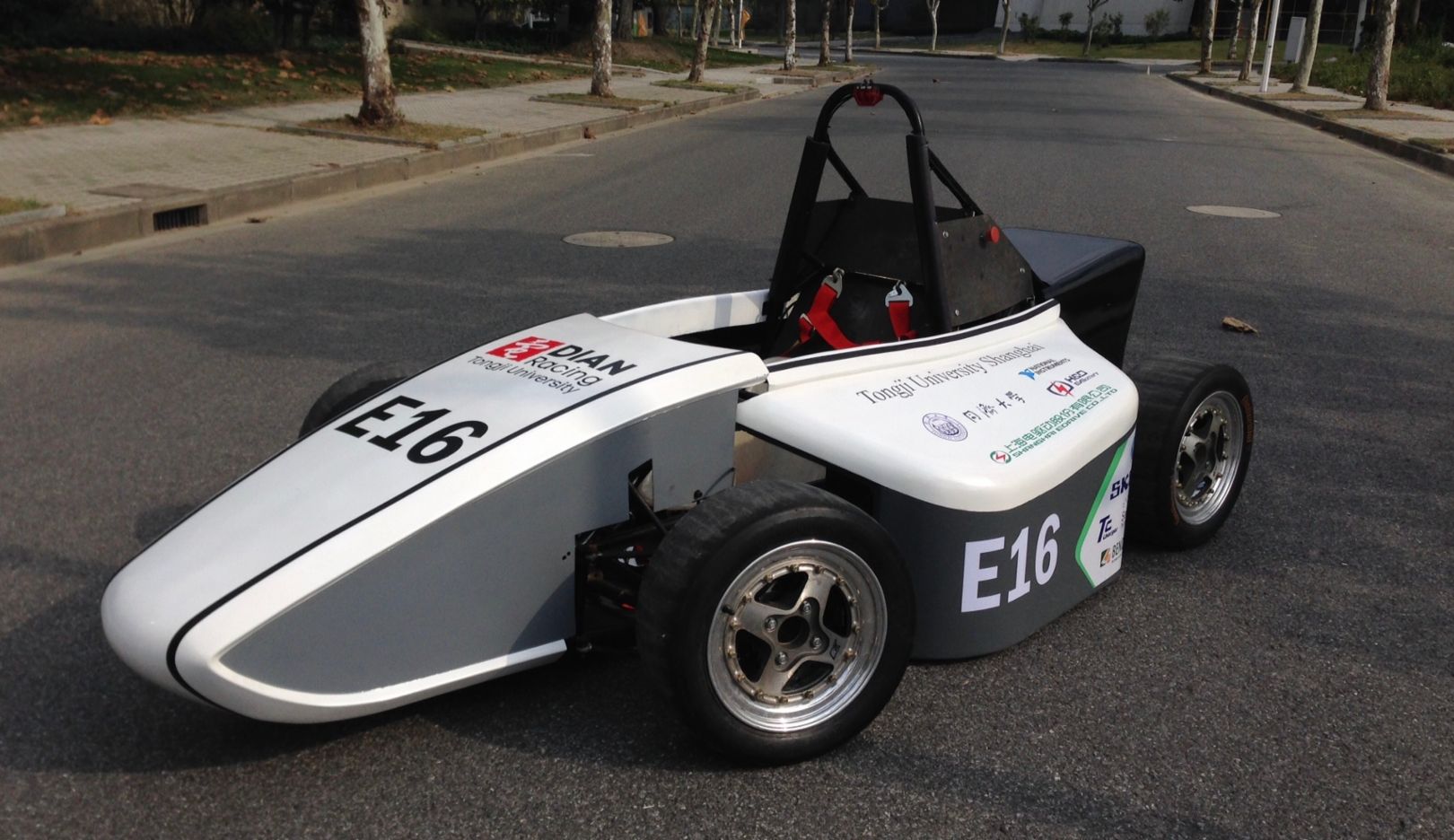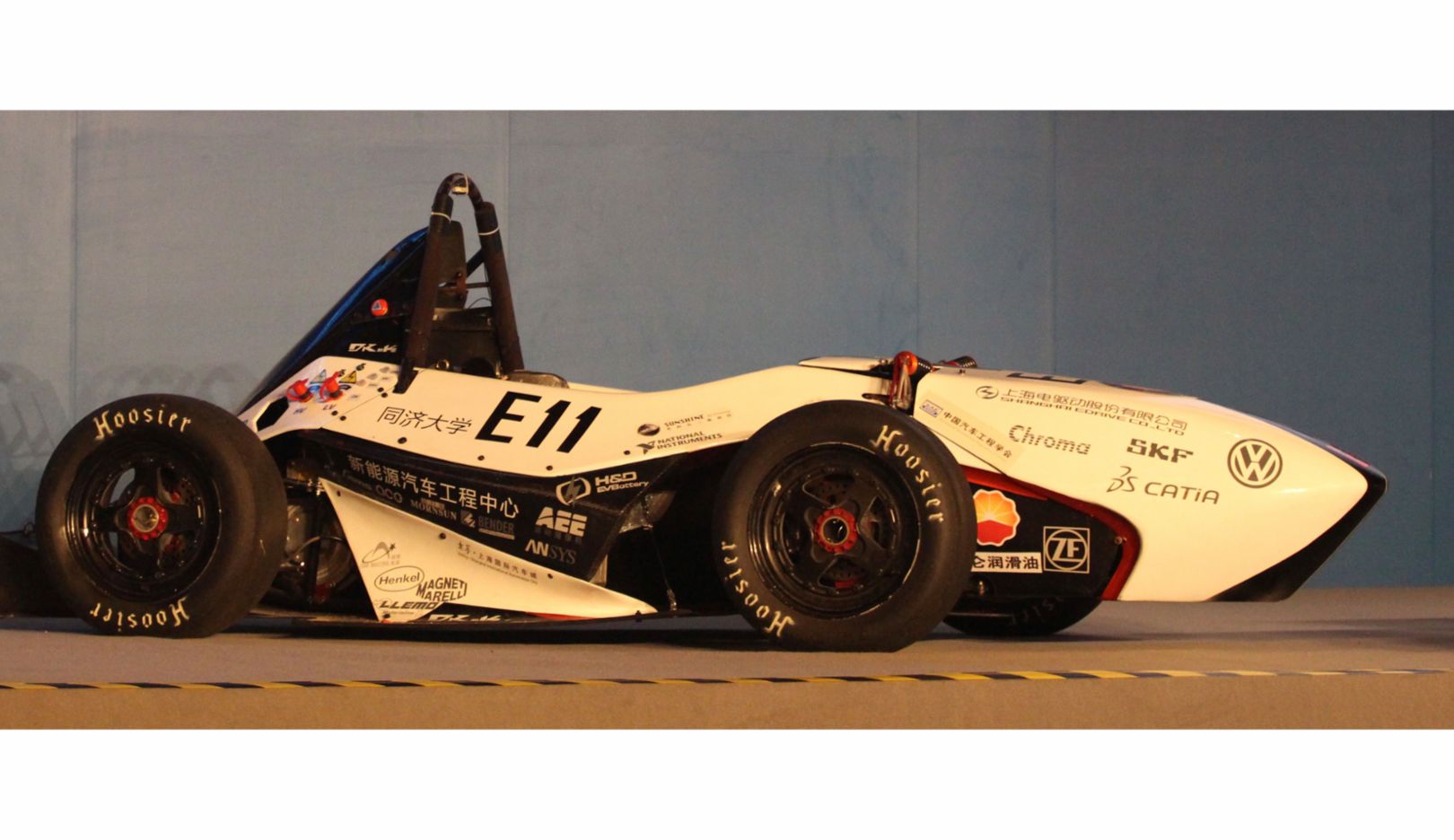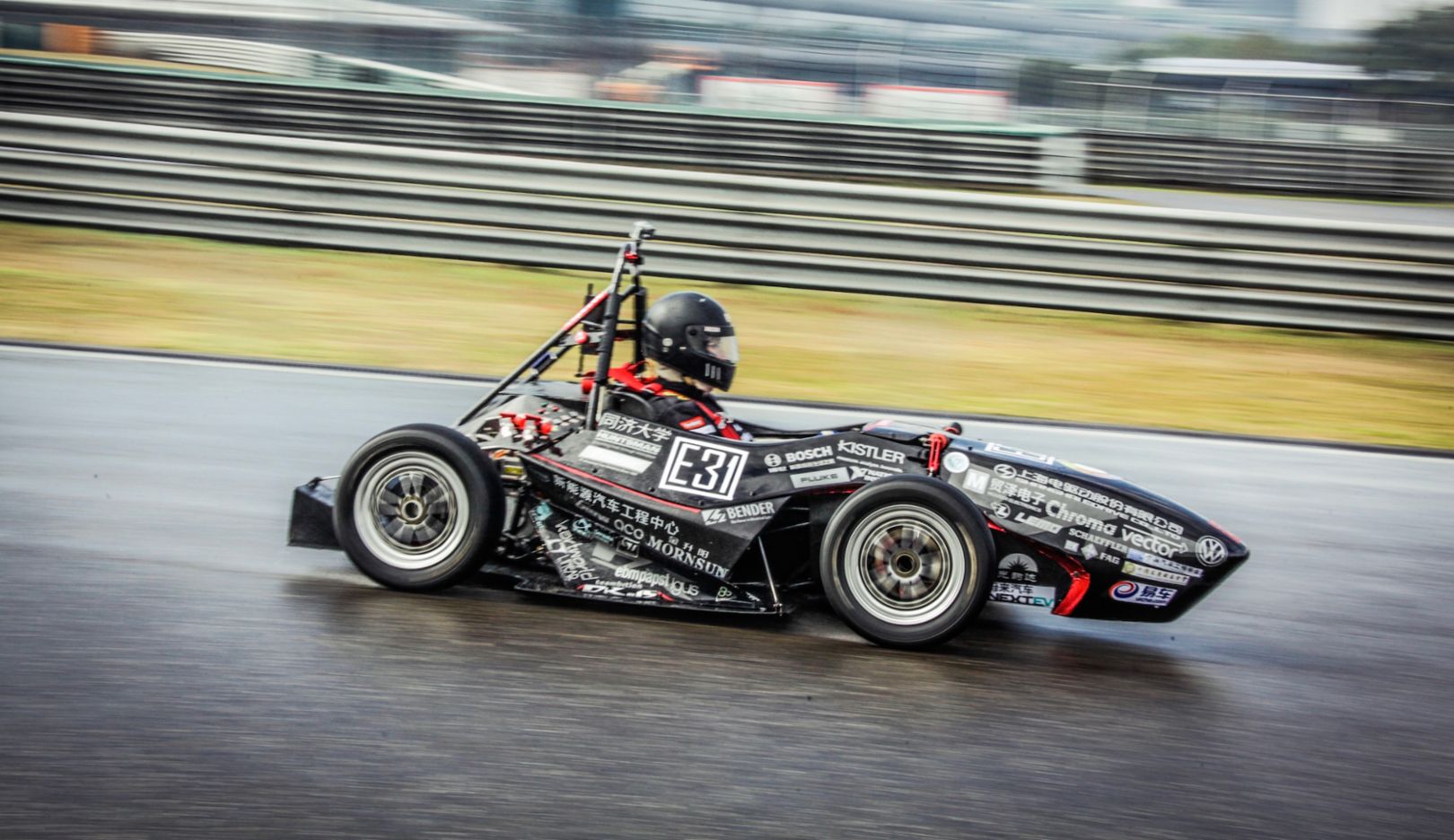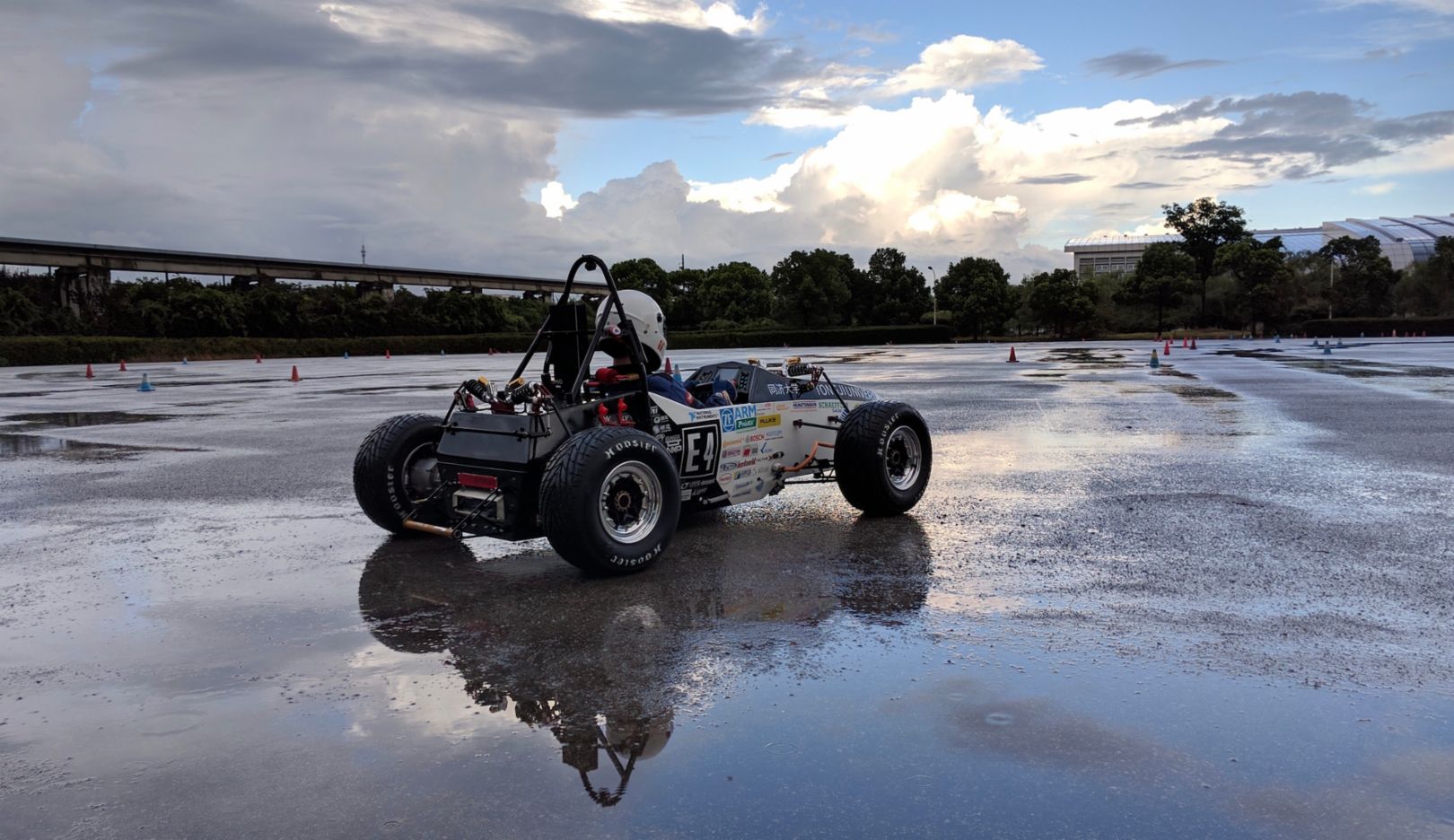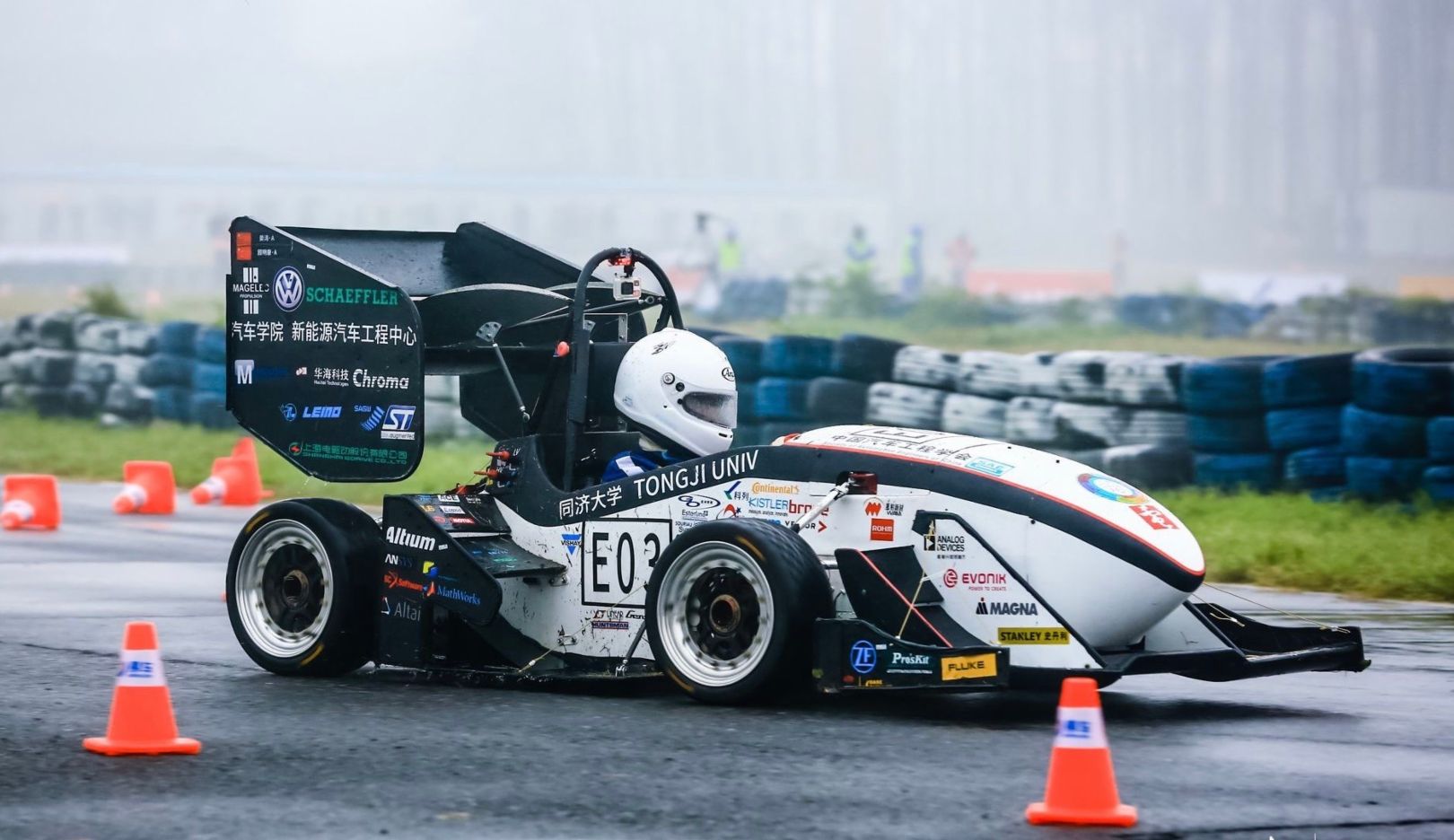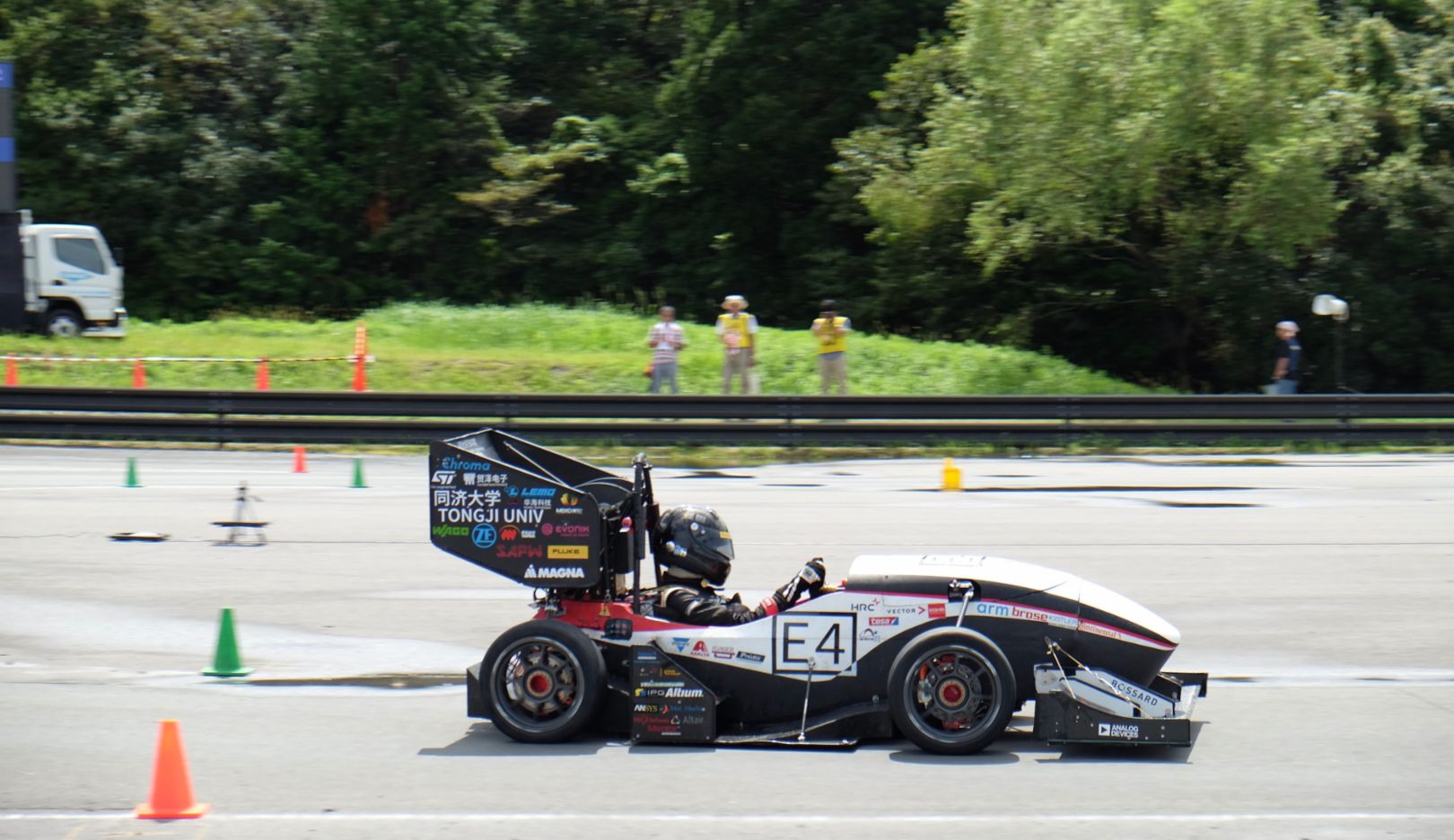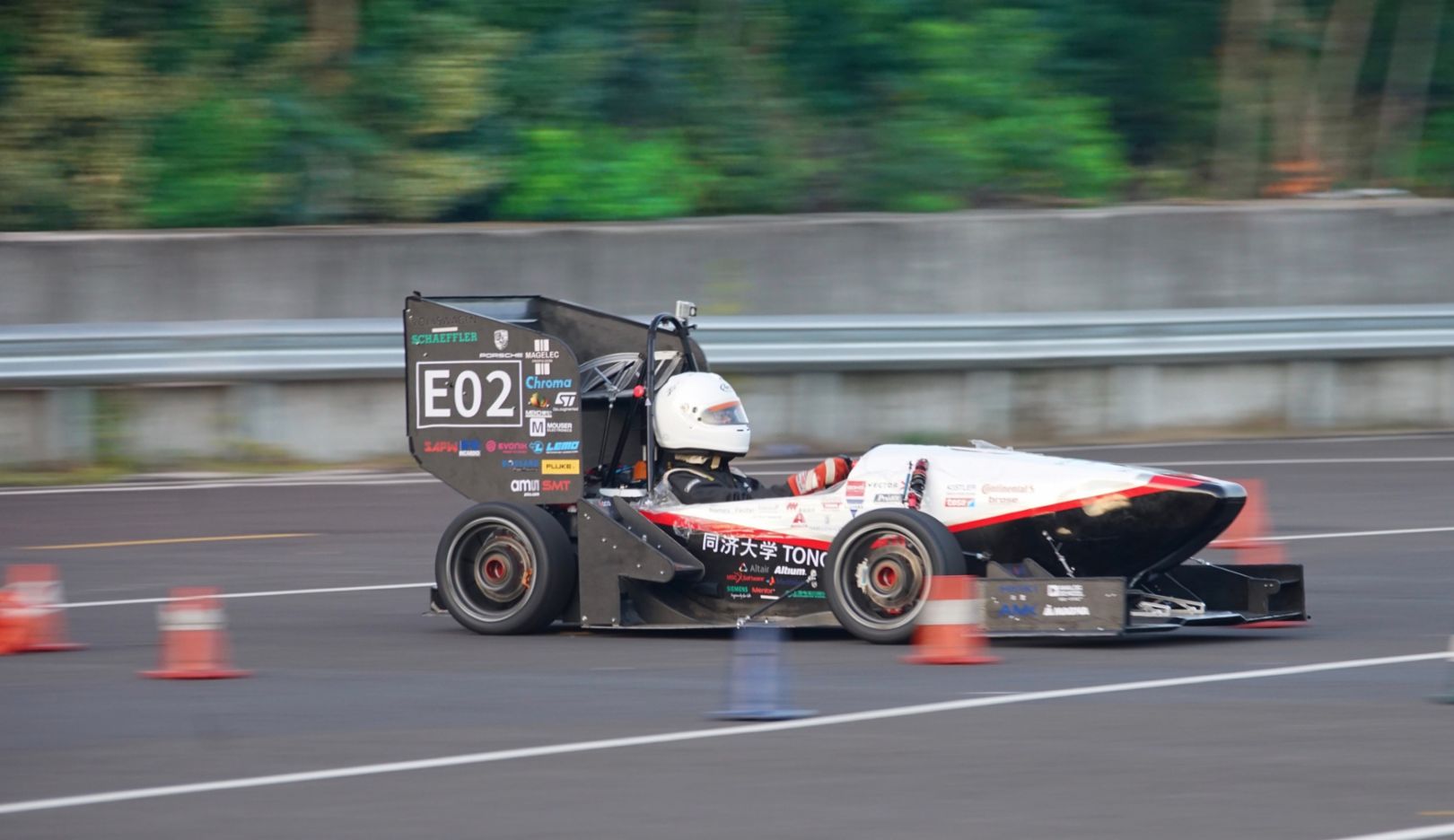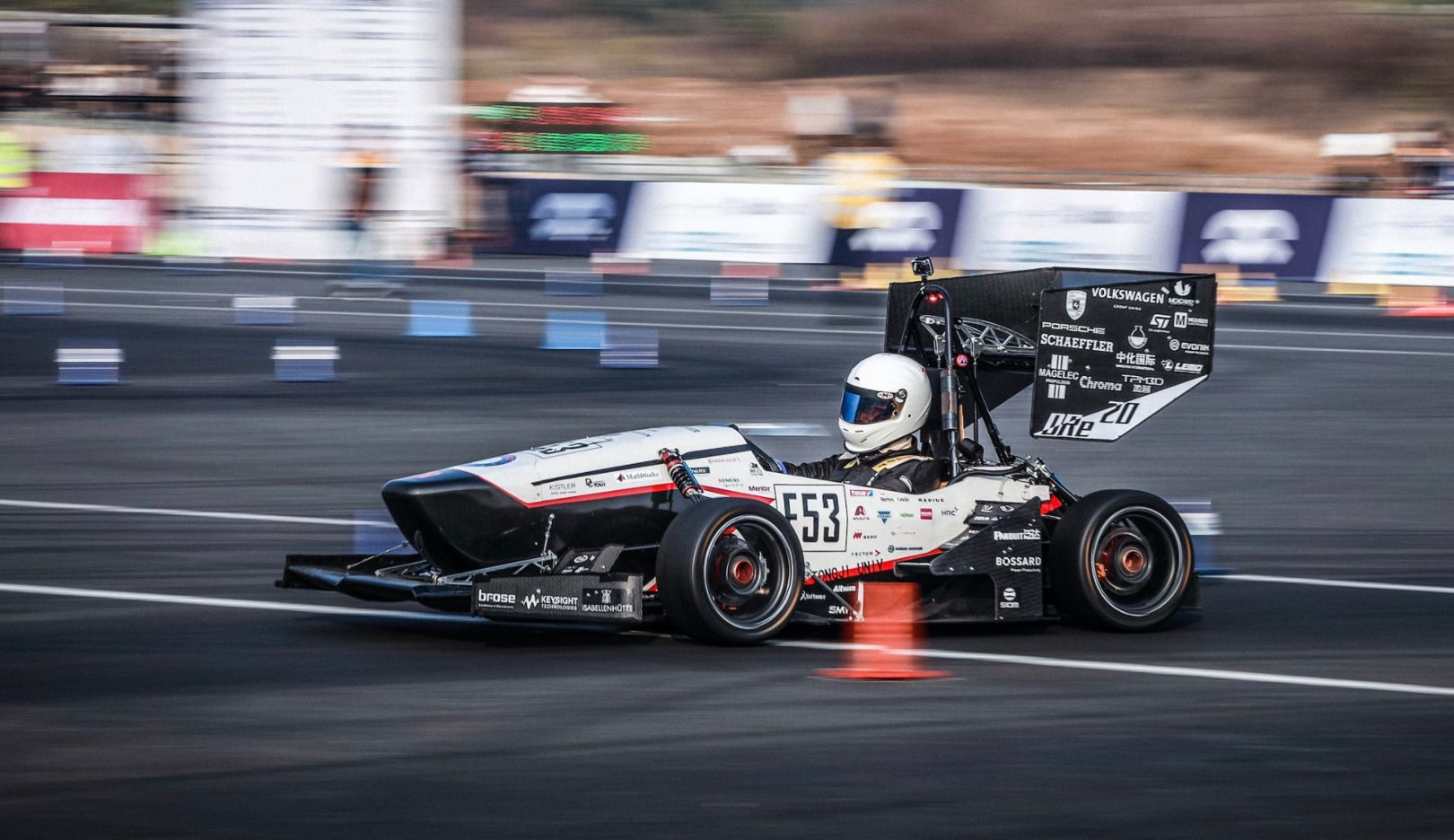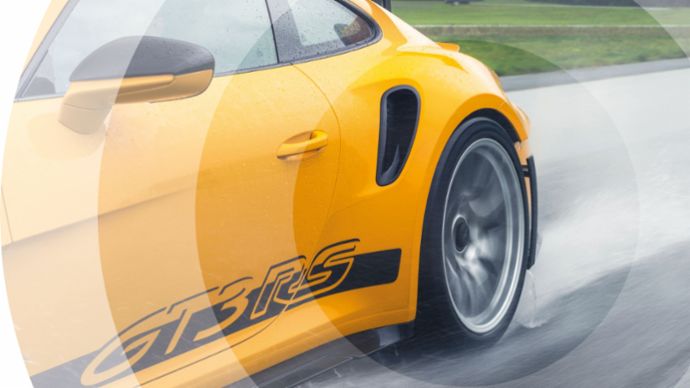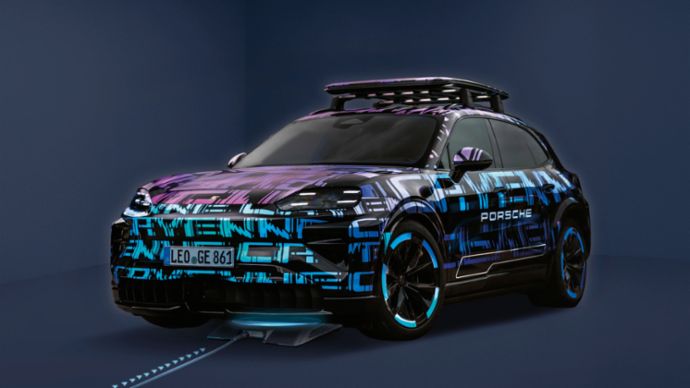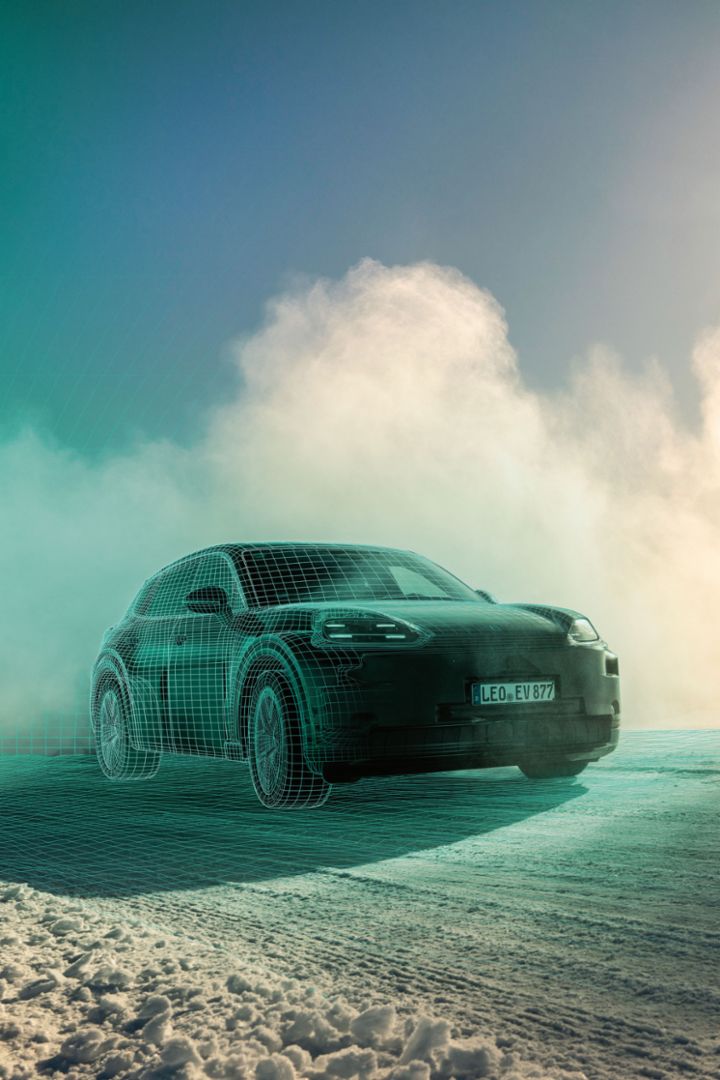Mr. Liu’s Formula for Success
Tongji University in Shanghai is one of the world’s most prestigious institutes of higher education. Porsche has supported some of its aspiring engineers. Liu Fan is one of them: together with his team, the student won the Formula Student Electric innovation competition in China.
“Hide your strength”— a creed followed by Liu Fan’s parents.
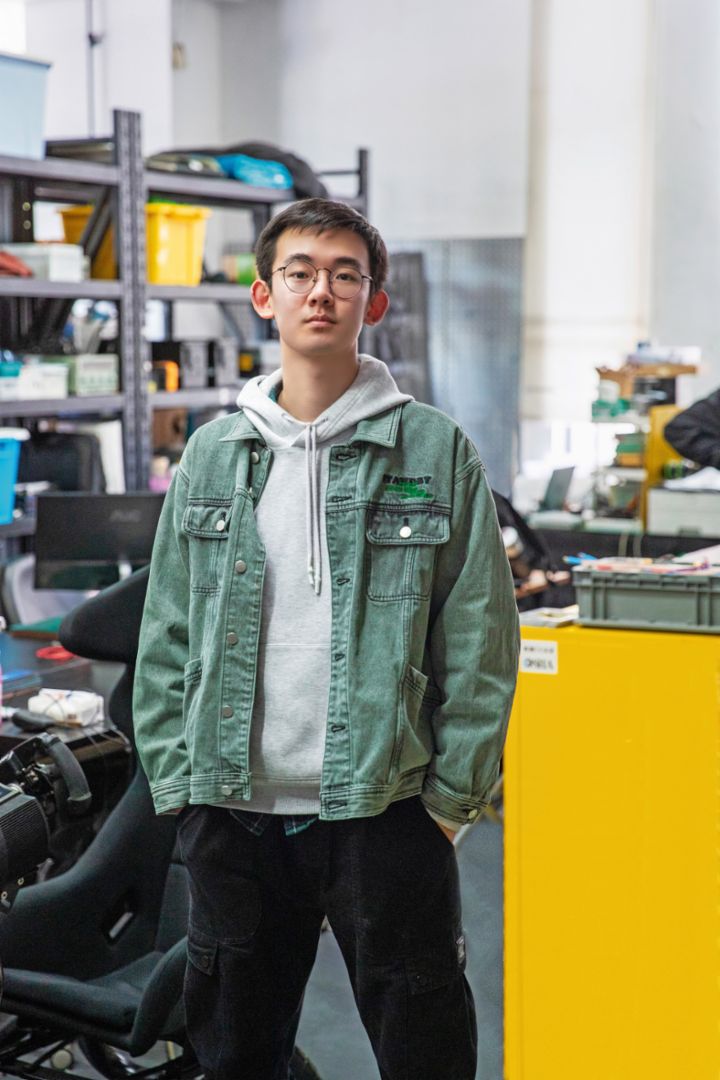
Talented engineer:
Liu Fan already discovered his passion for electric engines by the age of eight.If that was their plan, it has worked out well. In 1997, the Liu couple named their baby boy Fan, which means something like “regular.” The two teachers from the coastal city of Qinhuangdao—where the Great Wall juts into the sea—had two reasons for choosing this name. For one thing, it expressed their wish that their son would enjoy a normal and carefree childhood. And it also had philosophical implications, because it evokes a motto of the country’s former leader, Deng Xiaoping, which was to “hide your strength.”
For Liu Fan—in China the family name is said first—the motto was a superb fit. He passed the demanding tests required for university admission, and was accepted into the champions’ league for budding engineers—he earned a spot at Tongji University in Shanghai, famed as one of the world’s best places to study.
Liu Fan is now about to graduate, having won numerous awards along the way. The most important might well have been leading Tongji University’s team to victory in the Formula Student Electric as its captain. In this innovation-based contest, students design and drive all-electric Formula race cars. Liu Fan led the approximately one hundred members of his winning team, with Porsche China supporting the project.
“I’d launch a company with my teammates in a heartbeat” Liu Fan
Tongji University has a strong tradition of relations with Germany extending back long before the first sports car was built in Zuffenhausen. The elite university was founded in 1907 as a medical school by German physicians. Neither wars nor revolutions cut the ties. Launched in 1998, one of its institutes—known as the Chinese-German College for Postgraduate Studies (CDHK)—is considered a worldwide model of academic exchange.
This close relationship also led Oliver Blume, now Chairman of the Porsche Executive Board, to Tongji University, where he earned his doctorate: “I sensed a huge creative drive in the people there, along with a desire to keep developing both themselves and the country. That dynamic quality impressed me greatly.”
Oliver Blume came to China thanks to one of his doctoral advisors at the time, a Chinese who was teaching at the Technical University of Braunschweig. He invited Blume to further his studies at the newly established automotive engineering institute at Tongji University. In 2001, Blume became the first German to be awarded a doctorate there. The connection has continued. “Oliver Blume visited our team,” says a visibly impressed Liu Fan. “That made me all the more excited about Porsche.”
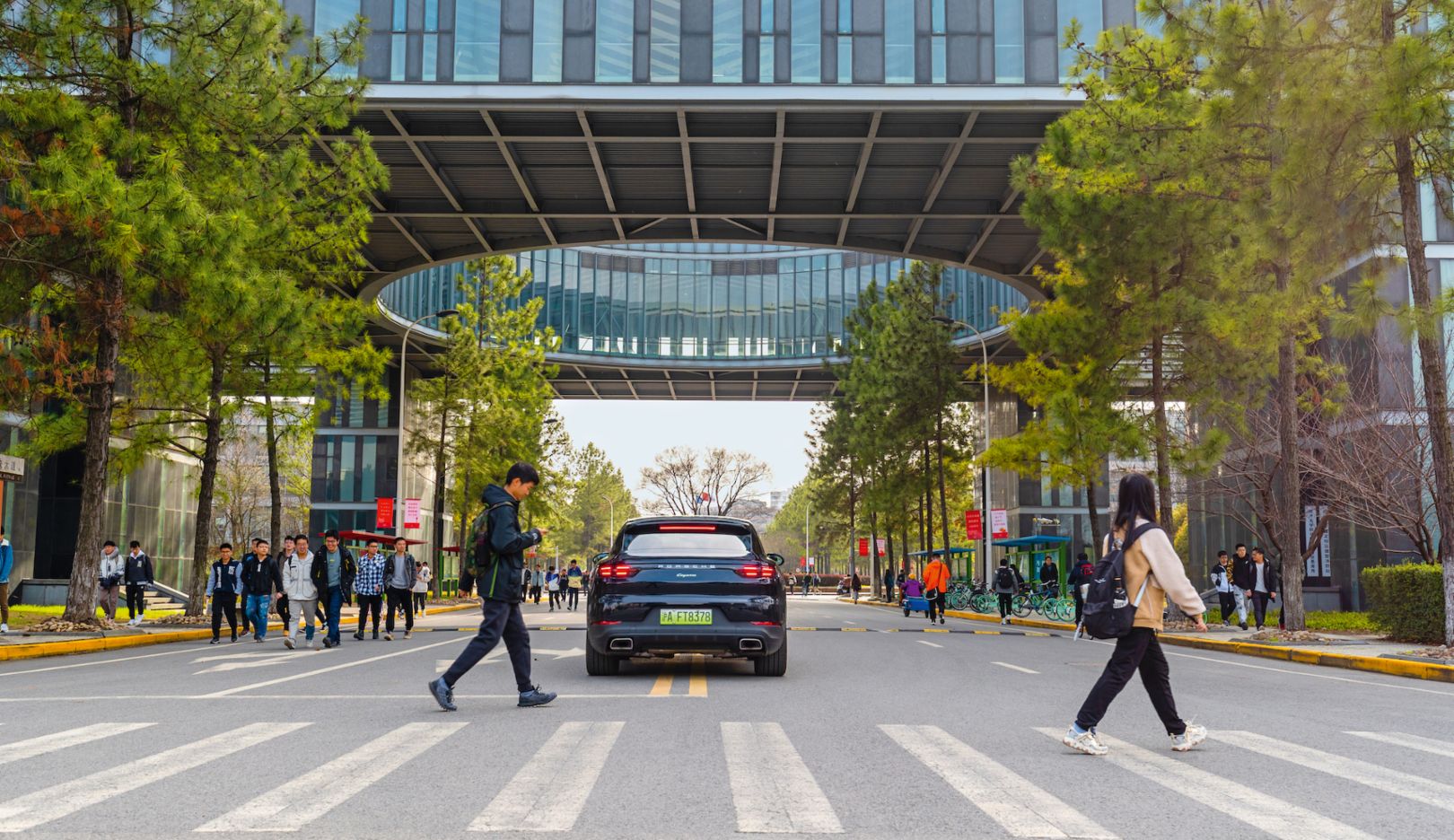
Tomorrow’s elite:
Porsche supports research into intelligent vehicles at Tongji University in Shanghai.Porsche China is celebrating its twentieth anniversary this year. It has enjoyed rapid success, with China becoming the sports-car maker’s largest single market in 2015. Porsche began supporting social and cultural projects in the Middle Kingdom right from the start. In April 2019, Tongji University and Porsche signed a memorandum of cooperation. The creation of a Chinese-German chair in the field of intelligent vehicles is just as much a part of this endeavor as are further educational opportunities and knowledge transfer. Accordingly, Porsche Engineering experts traveled to Shanghai to provide professional guidance to the students. When personal interaction became impossible due to the pandemic, they switched to digital training sessions. Less theoretical for the students but unquestionably sporty: the aspiring engineers from the university’s DIAN Racing Team underwent driver training at the Shanghai Porsche Experience Center’s circuit, which is located next to the Formula One racetrack. This also included a session on energy management with the vehicle in motion. Among other models, the young drivers took the wheel of the Porsche Taycan.
Fertile ground for start-ups.
The focus of research is very much on digital functions, a key issue in this country. China leads the world in the number of start-ups, and its younger generation is considered a major gauge of the automotive future. One indication is the average age of Porsche’s customers in China: thirty-five—compared to the average worldwide of fifty-three. And almost half of all Porsches in China are owned by women.
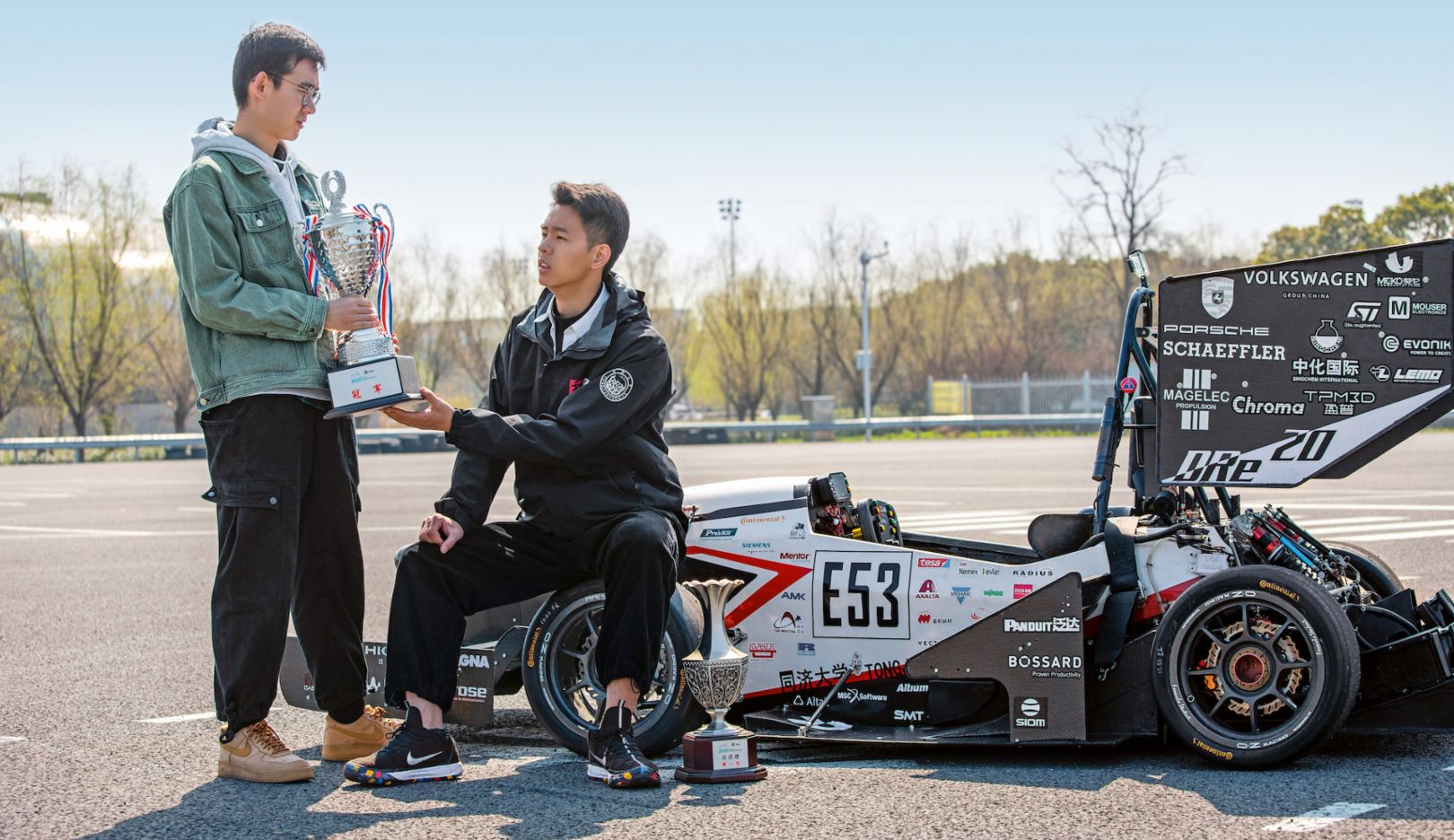
Pioneers:
Team captain Liu Fan and DRe20 driver Xiao Wenbo head Tongji University’s racing team, which has around one hundred members. Their mission: environmentally compatible mobility.By the age of eight, Liu Fan already discovered his love of automobiles when playing with a remote-controlled race car. He was fascinated less by the speed of the miniature electric vehicle than by how it functioned. In short, his curiosity was fired by modern technologies like electric drive systems. Liu Fan almost reflexively notes that the idea itself is not new. “After all,” he observes, “the Lohner-Porsche electric car was exhibited at the World’s Fair in Paris back in 1900.”
“It was a thrill to search for solutions under pressure with a team.”
Fan is also familiar with the Semper Vivus Lohner-Porsche from the same year and recognizes the vehicle’s hybrid drive as the forebear of cars like the Porsche Cayenne E-Hybrid, which he is driving across the campus today. As a fan of alternative drive systems, his current dream car is the Porsche Taycan. But he put his heart into the Formula Student Electric team’s winning car—the appealing DRe20 with its impressive rear wing.
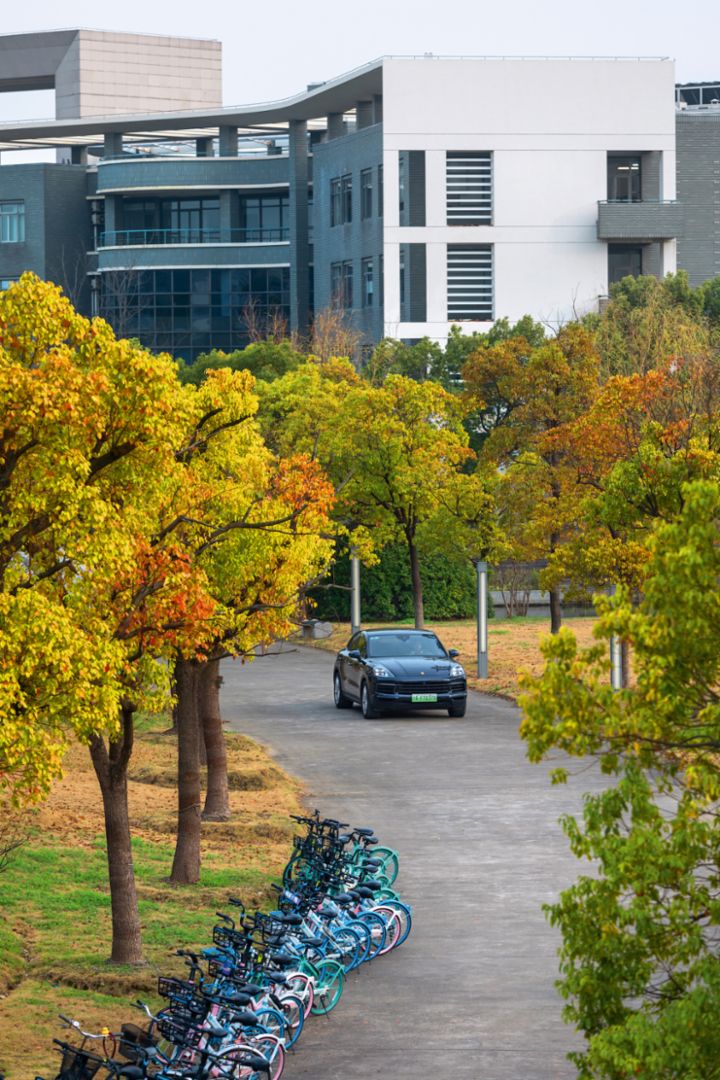
Started in 1981, the Formula Student competition does not take the form of a championship racing series but rather a worldwide innovation contest. Teams compete for points in disciplines like design, implementation, and performance. The practical part of the contest includes a timed stint on a handling course, an endurance test, and an acceleration trial. The teams normally compete on a worldwide basis, but in many countries students’ development work was interrupted by the pandemic. Plans for a German-Chinese student exchange program also fell victim to the virus. In fact, Liu Fan had even started to learn German.
The competition was therefore held locally. Some 101 teams met for six days in Xiangyang in Hubei Province. Sixty-seven of the Chinese university teams entered all-electric cars.
Like its competitors, the Tongji University team had to work from home during the preparatory period. Liu Fan, who had already won an award from the university for his leadership qualities in 2017, was elected captain and took over the coordination. “I would have been way too careful as a driver anyway,” he says with a smile. While their rivals made use of standard solutions in fields like battery management, the Tongji group developed the heart of the electric car themselves.
“The Lohner-Porsche electric car was exhibited back in 1900.”
Liu Fan programmed the software enabling uniform documentation of the engineering processes, and impressed the jury with flawless data transfer and communications. He himself was delighted by the teamwork. “It was a thrill to search for solutions under pressure with a tight-knit team,” he says. He would launch a company with his teammates in a heartbeat—or even better, start working for Porsche. The first step in that direction might already have been taken. Collaboration between Tongji University and Porsche includes inviting five outstanding students to internships at the company, one of whom is now Liu Fan. And he will certainly not be the last.
